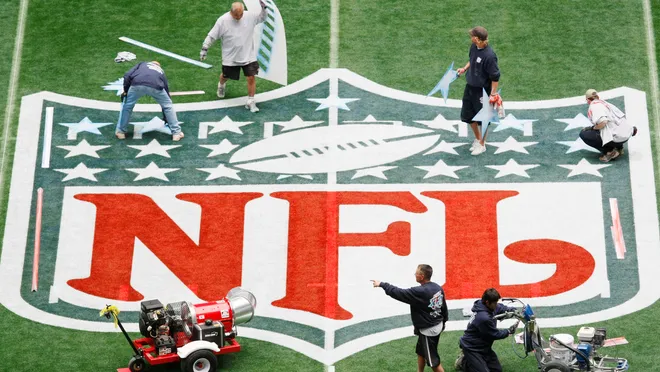The National Football League (NFL) is undoubtedly one of the most popular sports leagues in the United States, captivating millions of fans with its thrilling games and intense competition. Every year, fans eagerly await the start of the NFL season, marking the beginning of a journey filled with excitement, rivalries, and unforgettable moments. In this article, we will delve into the details of when the NFL season typically begins, exploring the factors that determine the start date and the significance of this highly anticipated event.
The Preseason: A Prelude to the Main Event
Before diving into the regular season, the NFL kicks off with a series of preseason games. These exhibition matches serve as a warm-up for teams, allowing them to fine-tune their strategies, evaluate new players, and assess their overall performance. The preseason typically begins in early August and lasts for four weeks, with each team playing four games. While these games do not count towards a team’s regular-season record, they play a crucial role in preparing players and coaches for the challenges ahead.
The Regular Season: The Battle for Glory
The true essence of the NFL lies in its regular season, where teams compete fiercely to secure a spot in the playoffs and ultimately strive for Super Bowl glory. The start date of the regular season varies from year to year but generally falls in early September. The NFL meticulously plans the schedule to ensure an equitable distribution of games and maximize viewership. Each team plays a total of 17 regular-season games over a span of 18 weeks, with one bye week per team to provide players with much-needed rest.
Factors Influencing the Start Date
Several factors come into play when determining the start date of the NFL season. One crucial consideration is the negotiation process between the league and the NFL Players Association (NFLPA). These negotiations revolve around various aspects, including player contracts, revenue distribution, and the overall structure of the season. Once an agreement is reached, the league can finalize the schedule and announce the start date.
Another factor that affects the start date is the availability of stadiums. Many NFL teams share their stadiums with other sports franchises or host other events, such as concerts or college football games. Coordinating these various activities and ensuring that the stadiums are ready for NFL games can be a complex task, often leading to slight adjustments in the start date.
Additionally, the NFL takes into account television broadcasting arrangements. The league has lucrative contracts with various networks, and scheduling games in a way that maximizes viewership is of utmost importance. The start date is carefully chosen to coincide with prime time television slots and avoid conflicts with other major sporting events.
The Conclusion: A New Season Begins
In conclusion, the NFL season commences with a series of preseason games that allow teams to prepare for the challenges ahead. The regular season, which follows the preseason, is the main event where teams battle it out for a chance at playoff contention and Super Bowl glory. The start date of the regular season varies each year but generally falls in early September. Factors such as negotiations with the NFLPA, stadium availability, and television broadcasting arrangements influence the determination of the start date. As fans eagerly await the start of each new season, they can rest assured that the NFL has carefully planned every aspect to deliver an unforgettable experience filled with passion, competition, and the thrill of America’s favorite sport.








